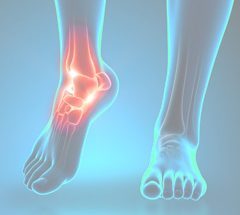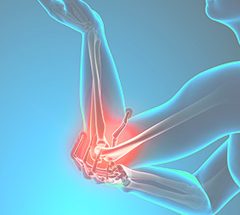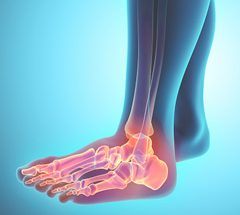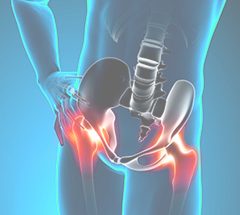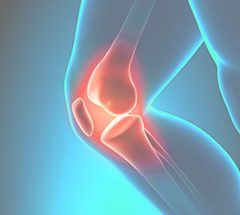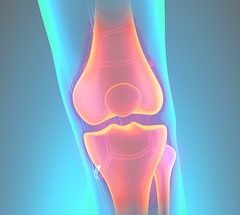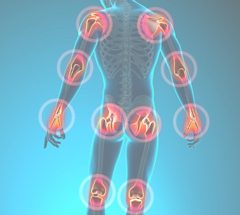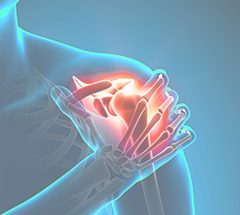Knee

The knees are one of the strongest joints in the human body. They’re also the most commonly injured. Knee arthritis is a big reason why, and it’s increasing at epidemic rates. The most common types of arthritis are osteoarthritis, post-traumatic arthritis, and rheumatoid arthritis. Injuries from sports, like ACL tears, meniscus tears, and cartilage injuries are often to blame for knee problems as well. Injured knees need specialized treatment, and may require surgery to return to an active lifestyle.
Our physicians are experts in addressing:
- Anterior Cruciate Ligament (ACL) Tears
- Cartilage Injuries
- Lateral Collateral Ligament (LCL) and Posterolateral Corner (PCL) Tears
- Medial Collateral Ligament (MCL) Tears
- MAKOplasty® Robotic-Assisted Surgery
- Meniscus Tears
- Posterior Cruciate Ligament (PCL) Tears
- Partial Knee Replacement
- Total Knee Replacement
Anatomy of the Knee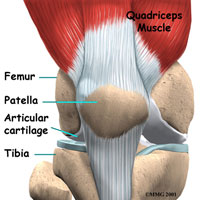
As the largest joint in your body, the knee is a connection point of three bones and four major ligaments (ACL, LCL, MCL, PCL). The thighbone (femur), shinbone (tibia), and kneecap (patella) are held together by cartilage where they meet, and two menisci act as a cushion to absorb impact between the femur and tibia. A synovial membrane surrounds the knee joint to keep cartilage lubricated and reduce friction. These crucial moving parts are a big reason why the knee is so vulnerable to injury.
What Does a Healthy Knee Look Like?
A healthy knee should be free of pain, support your weight, and fully flex and extend. When you squat, your knees should stay aligned and point forward rather than turn inward. Check your knees to make sure you don’t have any swelling, redness, stiffness, weakness, or popping noises.
Treatment Options
Surgical knee treatment leverages minimally invasive techniques, computer navigation, robotic assistance, and instruments tailored to the patient. Most knee injuries are treated with minimally invasive arthroscopic techniques. Approximately 700,000 knee replacement procedures are performed annually in the US, and for good reason – it’s one of the most effective operations in all of orthopedics. Sports medicine helps to treat acute knee injuries – from physical therapy to assistive devices, nonsurgical treatment is available.
Knee injuries need to be managed in a setting with specialized treatment where the most advanced techniques are available. By learning more about knee problems and consulting with one of the Seattle orthopedic physicians at our orthopedic clinic, you can intervene before issues progress and return to a pain-free life.






